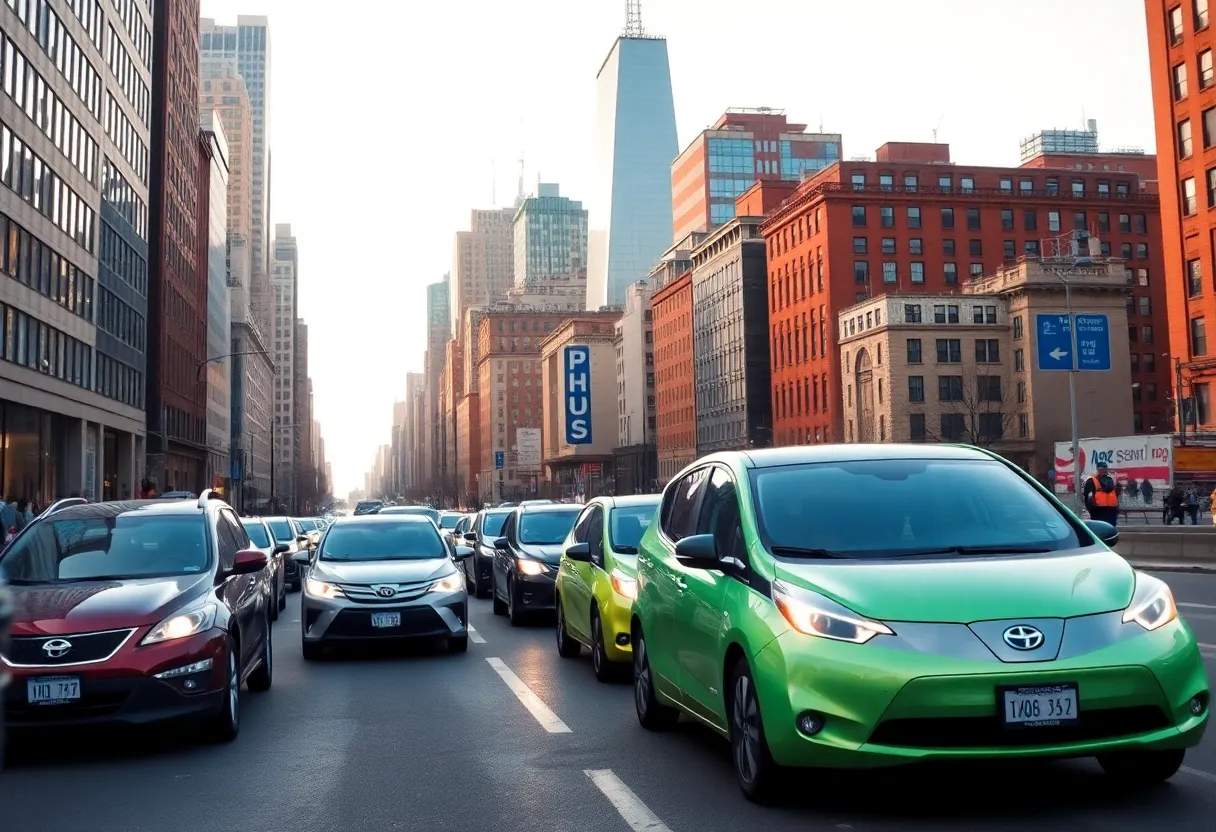News Summary
New York State Senator Patricia Fahy proposes revoking Tesla’s sales licenses amid rising tensions over electrification policies. The legislation aims to address the influence of car dealership lobbyists and pave the way for other electric vehicle manufacturers, but may complicate consumer choices and hinder market growth.
New York is facing a significant shift in its electric vehicle landscape as State Senator Patricia Fahy is pushing to revoke Tesla’s sales licenses amid rising tensions over electrification policies. The proposed measures come as the state grapples with pressures from car dealership lobbyists and aims to solidify its position as a leader in the transition to renewable energy.
Senator Fahy’s call to revoke Tesla’s ability to operate company stores highlights a larger issue concerning the influence of money in politics within the automotive industry. Current regulations limit Tesla to just five store locations in New York due to laws enacted to protect traditional car dealerships from direct competition. This limitation not only affects Tesla’s market presence but also poses challenges for other emerging electric vehicle manufacturers such as Rivian and Lucid.
The New York State legislature previously passed a law prohibiting direct-to-consumer sales, effectively preventing Tesla from competing in a way that consumers prefer. Many buyers appreciate the transparency and pricing benefits associated with purchasing directly from manufacturers rather than dealerships. The law was enacted just as Tesla began its efforts to challenge conventional dealerships, creating a significant bottleneck for the company’s growth in the state.
Senator Fahy has criticized Tesla’s CEO, Elon Musk, suggesting that his handling of government support for electric vehicle infrastructure and climate initiatives has contributed to the current difficulties. In her view, the faults lie not only with Tesla’s operations but also with Musk’s overall corporate strategies. She has proposed reallocating Tesla’s operating licenses to rival companies like Rivian, Lucid, and Scout Motors, further complicating the competitive landscape and potentially limiting consumer options.
This legislative action reflects broader concerns about the impact of lobbying on consumer choice and innovation within the automotive market. Critics argue that such moves could hinder not only Tesla’s growth but also the overall development of the electric vehicle market in New York. The state’s current stance may limit options for consumers seeking environmentally friendly transportation alternatives amidst growing demand for electric vehicles.
New York has ambitious goals regarding sustainability, aiming for 100% zero-carbon electricity generation by 2040. Among its initiatives is a noted effort to prohibit the use of natural gas and fossil fuels in new buildings starting in 2026, and a target for all new vehicles to be zero-emissions by 2035. These regulations signify the state’s commitment to reducing greenhouse gas emissions as outlined in the Climate Act of 2019, which aims for an 85% reduction from 1990 levels by 2050.
Currently, nearly 30% of New York’s electricity is derived from renewable sources, primarily hydropower. Nonetheless, the state continues to rely heavily on natural gas, highlighting the growing challenge of transitioning fully to sustainable energy practices. The conflict surrounding Tesla’s sales practices underscores the complexity of balancing economic interests, political influence, and environmental goals within the state’s electrification efforts.
In summary, as New York State navigates its electrification initiatives, the dynamics between Tesla, lawmakers, and the automotive industry will continue to evolve. The decisions made in the coming months regarding Tesla’s sales licenses will not only influence the company’s future in New York but may also set a precedent for how emerging electric vehicle manufacturers operate within a landscape dominated by established dealerships and legislative hurdles.
Deeper Dive: News & Info About This Topic
- The New York Times
- BBC Future
- GlobeNewswire
- Tesla Oracle
- CleanTechnica
- Wikipedia: Electric vehicle
- Google Search: New York electric vehicle laws
- Google Scholar: Electric vehicles New York
- Encyclopedia Britannica: Electric vehicle
- Google News: New York electric vehicle news








